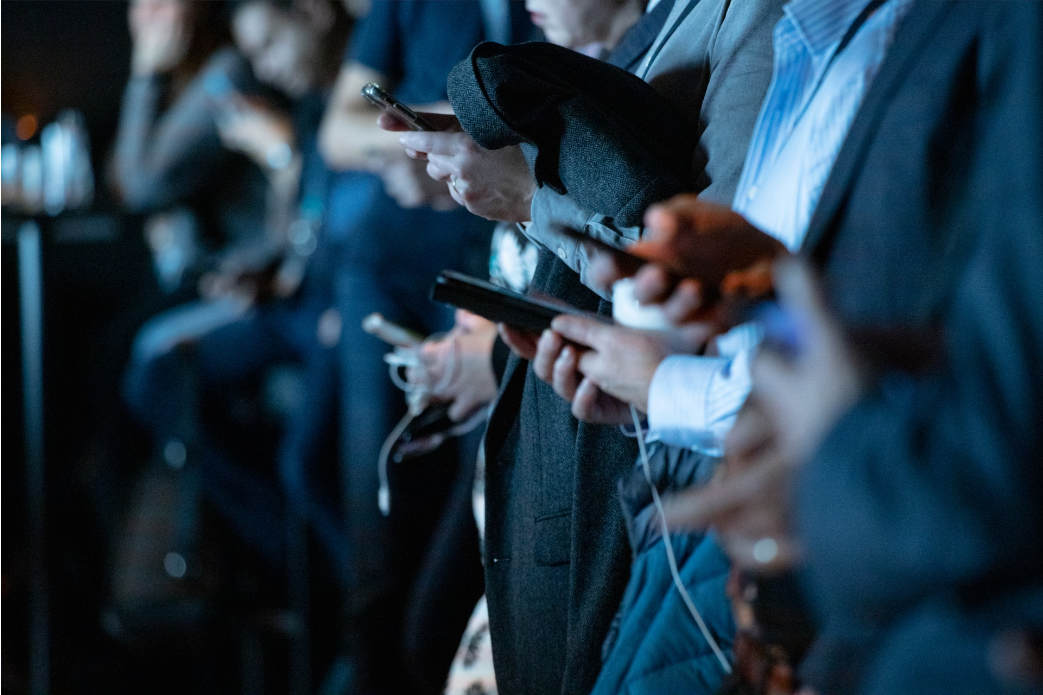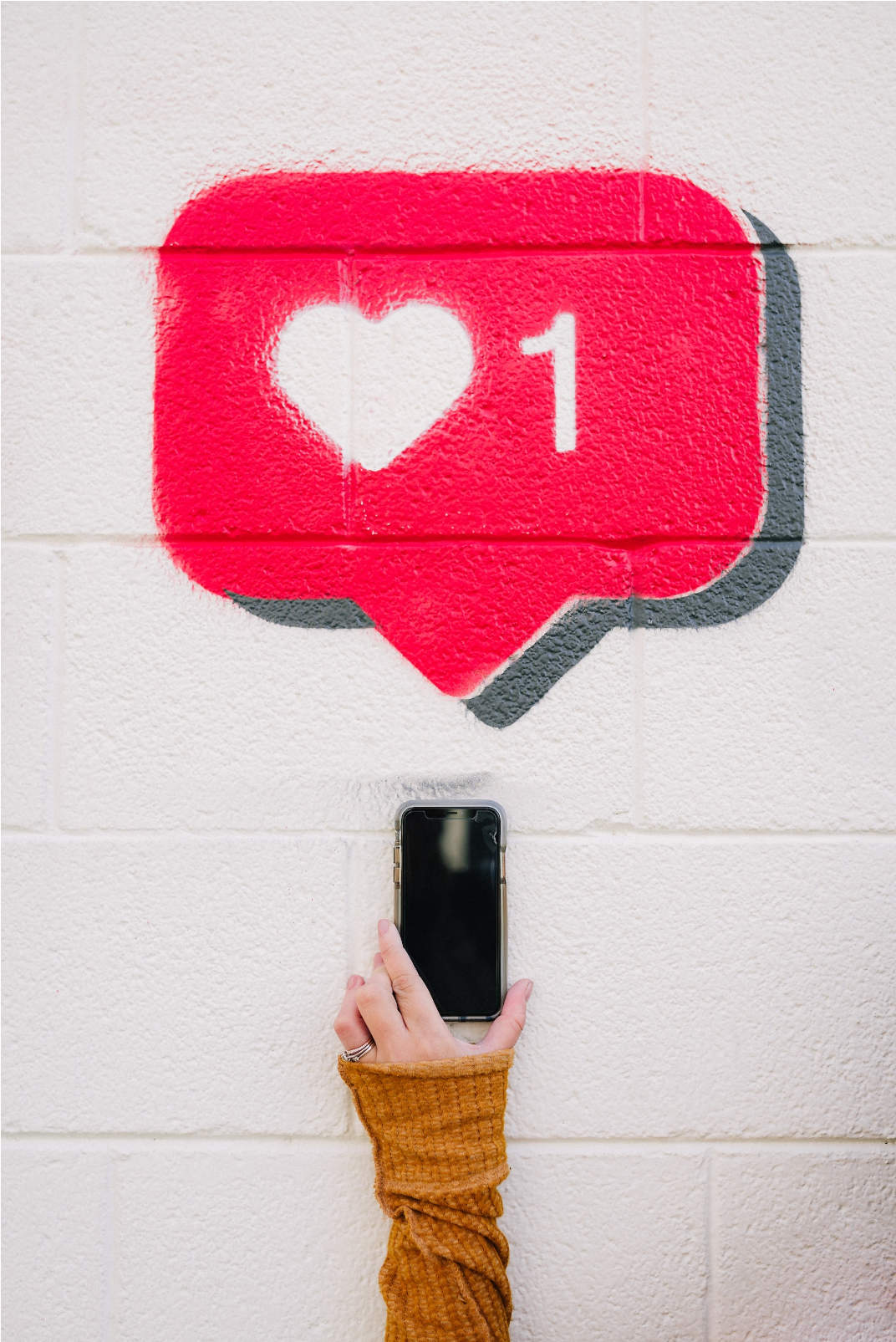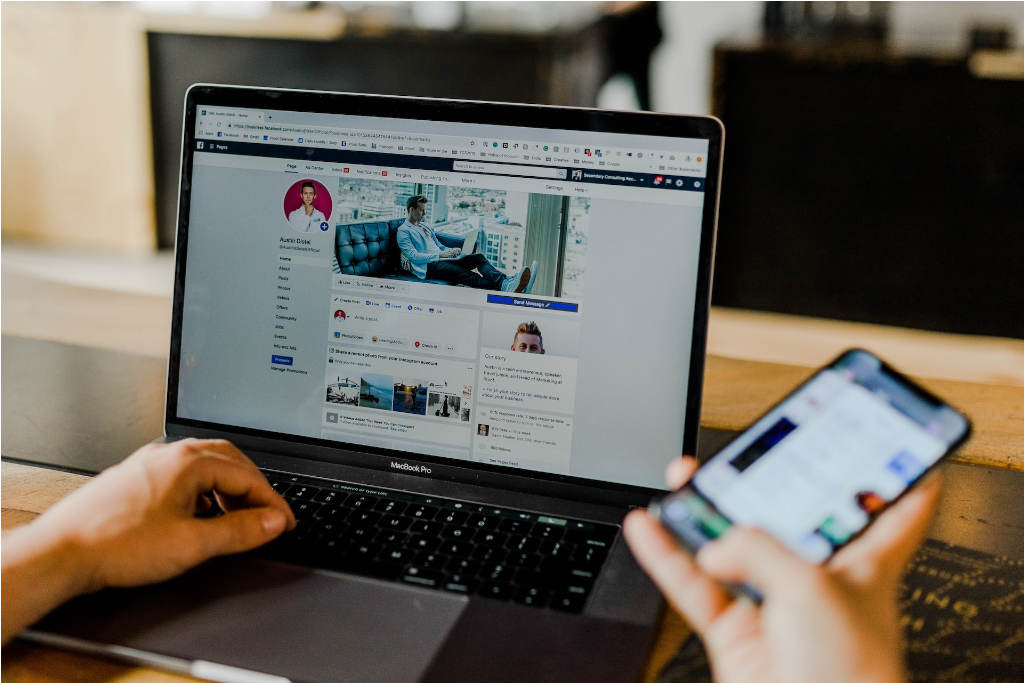Step into the digital realm, where vibrant screens and endless scrolling beckon us with promises of connection and entertainment. Social media platforms have become a ubiquitous part of our lives, shaping how we communicate, share, and interact with the world.
Have you ever paused to consider the lurking dangers concealed beneath the captivating screens? It’s time to delve into the untold side of social media, one that often goes unnoticed amidst the rising numbers. According to the latest article by Forbes, the global count of social media users has surged to an astonishing 4.9 billion people. And brace yourself because this number is projected to skyrocket to approximately 5.85 billion users by 2027.
Here, we will explore the untold health risks associated with social media, shedding light on the alarming consequences that seem to have slipped through the cracks.
How Excessive Screen Time Takes a Toll on Physical Well-Being
Excessive screen time not only affects your physical health but also has specific impacts on various aspects of your well-being. Let’s explore some of these effects in detail, shedding light on the hidden perils of prolonged screen use.
Reduced Cholesterol
Prolonged screen time often leads to a sedentary lifestyle, which can contribute to reduced levels of high-density lipoprotein (HDL) cholesterol. When your bodies remain inactive for extended periods, such as during excessive screen use, the levels of HDL cholesterol can decline, increasing the risk of heart disease.
According to a recent study published in the National Library of Medicine, extended screen usage of more than three hours is associated with a significant decrease in HDL cholesterol. The study suggests that several factors contribute to this correlation, including the influence of extensive food advertisements, impaired regulation of food intake while engaged with screens, and a sedentary lifestyle resulting in reduced movement and physical activity.
Decreased Cortisol
The constant exposure to screens and the digital world can disrupt your stress hormone levels, particularly cortisol. Excessive screen time can lead to reduced cortisol levels in the body, which may seem beneficial at first glance. However, chronically low cortisol levels can impair your body’s stress response system, potentially leading to a weakened immune system, fatigue, and difficulty managing stress effectively.
Based on research findings, cortisol, a stress hormone produced by the hypothalamic-pituitary-adrenal (HPA) axis, is considered a biomarker for stress in pediatric studies. Both low and high cortisol levels have been associated with poor performance.
Normally, cortisol levels are lowest during nighttime and gradually increase as waking hours approach, experiencing a sharp spike upon waking up. However, the study reveals that school-aged children who spend up to three hours per day using media exhibit a diminished cortisol surge one hour after waking up, which can have negative consequences.
Disrupted Insulin Balance and Diabetes
Sedentary behavior, one that includes excessive screen time, often associated with excessive screen use, can lead to weight gain and obesity. This weight gain, combined with the lack of physical activity, can disrupt insulin balance and impair the body’s ability to regulate blood sugar levels. Over time, this can contribute to the development of insulin resistance and increase the likelihood of developing type 2 diabetes.
Recent studies have discovered that insulin, a hormone crucial for regulating metabolism and fat storage, is secreted by the islets of Langerhans in the pancreas. Insulin resistance, a condition where cells are unable to utilize insulin effectively, plays a significant role in the development of diabetes and increases the risk of cardiovascular disease. Higher screen time, such as watching television, playing video games, or using the computer for an additional hour each day, can lead to a 5% decrease in insulin sensitivity. What’s more, other studies have linked as little as two hours of daily screen time to abnormal insulin levels.
However, when you understand these specific impacts of excessive screen time on your physical health, you can make informed decisions about your screen usage and adopt healthier habits to mitigate these risks.
How Social Media Undermines Mental Health
The prevalence of social media in your lives has brought forth a range of detrimental effects on your mental well-being, often overlooked and underestimated. You need to recognize these hidden perils that social media poses to your mental health and shed light on the specific consequences that tend to go unnoticed.
Depression and Suicidal Behavior
The constant exposure to carefully curated, idealized versions of others’ lives can lead to feelings of inadequacy, social comparison, and a decline in self-esteem. The negative impact of cyberbullying and online harassment further exacerbates these mental health concerns, pushing individuals towards depressive states and potentially harmful behaviors.
Recent studies have highlighted the concerning rise of social media-induced depression, especially among the younger generation. Unawareness of effective social media usage can lead to feelings of jealousy, self-doubt, and low self-esteem. Sleep disturbance, resulting from excessive screen use at night, is identified as a mediating factor connecting social media to depressive symptoms and suicidal thoughts in adolescents. Smartphone dependence, messaging frequency, and pre-bedtime anxiety about message replies are linked to mood swings, suicidal thoughts, and self-injury.
ADHD (Attention Deficit Hyperactivity Disorder)
Excessive engagement with social media platforms has been associated with attention difficulties and symptoms resembling ADHD. The constant scrolling, multitasking, and exposure to an overwhelming amount of information can impair concentration, focus, and impulse control. This can have long-term implications on cognitive function and academic performance, especially among young individuals who are more susceptible to these challenges.
Studies have shown that children in contemporary society may display varying symptoms of ADHD, including inattentiveness, hyperactivity, and impulsivity. This kind of behavior, often associated with ADHD, is linked to the amount of time spent on screens. Excessive use of digital devices is commonly observed among younger children and teenagers, both among those who have been diagnosed with ADHD and those who are believed to be dealing with attention-related challenges or impulsivity.
Neuropsychological Effects
Excessive social media usage can lead to altered brain structure and function. The constant need for instant gratification, excessive dopamine release from notifications and likes, and the addictive nature of social media can impact the reward circuitry in the brain. This can result in decreased attention span, reduced empathy, impaired decision-making, and increased susceptibility to addictive behaviors.
Research indicates that internet addiction in any form leads to structural changes in the brain, particularly in the frontal lobe. These changes affect the brain’s ability to filter out irrelevant information and cope with demanding tasks. Multitasking across various media devices has been studied, revealing that continuous attention to screens can replace real-world engagement.
College students who demonstrate high scores in multitasking have been observed to display diminished grey matter in the anterior cingulate cortex, an area linked to cognitive control and the regulation of socioemotional functions. Recent allegations and studies, including those referenced by TorHoerman Law, have raised concerns about the impact of Instagram on all social media platforms. Studies indicate that how individuals engage with Instagram can significantly affect their mental well-being, particularly among young girls and women.
While the duration of Instagram usage alone may not directly lead to negative outcomes, it has been observed that individuals who seek social validation on the platform are more prone to experiencing mental health issues. Individuals who have experienced adverse effects on their mental health are taking action by pursuing legal recourse through an Instagram lawsuit. These individuals are seeking legal remedies for the negative consequences they have encountered as a result of using the platform.
The lawsuit highlights the growing recognition of the impact that social media, particularly Instagram, can have on individuals’ well-being. By filing a lawsuit, these individuals are aiming to hold Instagram accountable for its alleged role in exacerbating mental health issues, especially among vulnerable populations such as young girls and women.
Social Media and Poor Sleep Quality
Social media’s impact on your sleep quality is a significant yet often overlooked peril to your overall well-being. The constant need for validation, fear of missing out, and endless scrolling can keep you engaged with your devices well into the night, stealing precious hours of restorative sleep.
A recent study published in Wiley Online Library shed light on the connection between social media usage and poor sleep quality. The findings revealed that a significant majority of students, approximately 82.1%, accessed social media within two hours before going to sleep, indicating a notable nocturnal engagement with these platforms.
Plus, the study found that a substantial proportion of students, around 62.1%, utilized social media while in bed, blurring the boundaries between screen time and rest. Disturbingly, nearly 29.7% of students reported engaging with social media while attempting to fall asleep, further highlighting the detrimental impact of these activities on the quality of sleep.
Interestingly, the study also found that a significant percentage of students, approximately 18.3%, experienced delays in falling asleep as a direct result of their nighttime social media use. These findings suggest that the stimulating and addictive nature of social media can disrupt the natural sleep onset process, leading to extended periods of wakefulness before finally succumbing to slumber.
The Rise of Social Media Addiction
Today, an increasing number of individuals are succumbing to the allure of constant online connection and struggling to break free from the grip of social media platforms. Shockingly, social media addiction shares similarities with other forms of behavioral addiction, such as gambling or substance abuse. The compulsive need to check notifications, obsessively scroll through feeds, and the fear of missing out (FOMO) contribute to a cycle of craving and seeking validation.
The design of social media platforms is intentionally crafted to foster addiction, employing various techniques to keep users engaged for longer periods. Features like endless scrolling, personalized notifications, and dopamine-driven reward systems tap into your psychological vulnerabilities, making it challenging to resist the allure and pull away from the screens.
Extensive research has consistently demonstrated that frequent social media usage can give rise to addiction, subsequently exerting adverse effects on various aspects of adolescents’ lives. Multiple studies have highlighted the detrimental impact of social media addiction on academic performance, social interactions, and interpersonal relationships among young individuals.
Empirical evidence suggests that addictive tendencies towards social media can lead to a decline in school performance, as excessive time spent on these platforms detracts from academic focus and engagement. Moreover, addictive behaviors associated with social media usage can hinder adolescents’ ability to develop healthy social skills and maintain meaningful face-to-face interactions.
As adolescents become increasingly consumed by the allure of social media, it becomes essential to recognize the potential determinants it poses to their school performance, social behavior, and interpersonal relationships.
Summing Up
The pervasive influence of social media on your health is a topic that deserves greater attention. From the impact on mental health to physical well-being, social media poses significant risks that often go unnoticed. The detrimental effects of poor physical and mental health, poor sleep quality, and addiction are just a few of the consequences you must confront. It is imperative to strike a balance between the advantages of social media and your overall well-being. It is time to take control of your online experiences and prioritize your health above the addictive allure of social media.
Let us step out from behind the screens, embrace real-life connections, and create a healthier relationship with technology. By doing so, you can mitigate the unnoticed perils of social media on your health and strive for a more balanced and fulfilling existence.
























